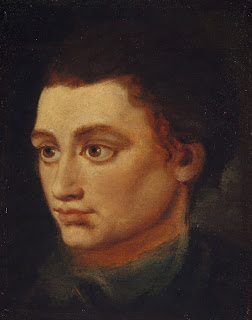Scottish literature over long eras has been neglected or deliberately obscured, so securing its place in the firmament is a kind of redress, a reclamation. “ Alan Riach
Language expresses who we are,
A canon is a form of cultural empowerment, “any canon of Scottish literature is a form of cultural reclamation, a resistance to the canonical weight of English, or Anglo-American, or Anglophile literatures in English, what used to be called commonwealth literature.”
 |
| Lewis Grassic Gibbons |
 |
| RL Stevenson |
In 1911, the Scottish Education Department moved to Edinburgh. English was then used to deliberately destroy Scots culture and to eradicate “Scottishness.” In 1950s Gaelic teaching was stopped, - and only English was taught. In some counties of Scotland today most English teachers are non-Scots.
Scots should be taught in schools as a second language – to protect our history and culture. In the EU children are taught their own language and English as the language of western international business.
The importance of Scottish literature
WHY has Scottish literature not been explored as confidently as other literatures.
“The subject needs to be more widely known and discussed with more confidence and curiosity.... There has been work since 1980s, and more needs to be done." Alan Riach
At college down Edinburgh Royal mile, I studied French author Gustave Flaubert’s Madame Bovary, and American poet Sylvia Plath, when I specialized in English, at school I studied Chaucer, Shakespeare, and novels Catch 22, English novelist Jane Austen. The union 1707 was basically an elite project begun under James VI – to incorporate Scottish history, literature and religion into the English system. Many rebelled – poets Allan Ramsay, Robert Fergusson, Robert Burns), Covenanters, academics. Holyrood must protect Scots literature and Scots language, so its taught in schools alongside English.
All this began with the elite project under James VI, at a meeting of clan chiefs on Iona, when it was agreed that every eldest son would be educated in England.
 |
| Robert Fergusson |
**BOOKS
Why Scottish literature matters? Professor Carla Sussi
SCOTTISH LITERATURE – from poets
And scholars such as George Buchannan, who wrote of democracy for all.
American founding father – John Witherspoon,
Our great Bard Robert Burns, Scots authors -
And todays many acclaimed Scots academics, authors, artists, musicians and innovators. Scots literature and Scots voices do matter and have unique contributions to make. Alongside scientific discoveries and one of the world\s first surgeons and medical schools.
 |
| Douglas Stuart |
**SCOTS Booker Prize winners
Disgracefully as usual in a Time article there is no mention of Scotland’s recent Booker prize winners. The Scottish literary scene boasts several Booker prize winners – 2020 Douglas Stuart’s Shuggie Bain, 1994 James Kelman’s How Late It Was, How Late.
Plus Booker shortlisted authors – Ali Smith, Andrew O’Hagan, AL Kennedy, Graham McCrea Burnett, Muriel Spark. World famous Scots novelists of modern times include –Iain Banks, Val McDermid, Irvine Welsh, Ian Rankin, Louise Welsh, Liz Lochhead, Alan Bisset, Chris Brookmyre, Denise Mina, Alexander McColl Smith, Alasdair Gray, Janice Galloway, William McIlcanney, Maggie O’Farrell,
Famous Scots writers of the past – Arthur Conan Doyle, J M Barrie, John Buchan, Robert Louis Stevenson, James Boswell, John Barbour, Adam Smith.
Hackett quotes Irish writer Magee, “The English may be too comfortable to write great novels.”
At least six times in her article she labels ‘Britain/ England’ as one and the same, the England label can never include Scots or the Welsh and we’ll never regard Britain as England as our cultural or historic home, even though so many Scots remain in ignorance of Scotland’s rich histories of which we might be proud. Its time Londoners woke up to this reality.
Our creative stories, arts and music are intrinsic to our shared voices and view of self.
Perhaps creative thinkers either can’t afford or don’t want to be in London. In ‘Britain/ England’ mind-set little exists outside of London. In the 80s London boasted a thriving literary scene around Soho. But today’s London is dominated in its skyline by foreign oligarchs empty high-rises, populist musicals, global chain outlets and over priced art.
**BOOKS
Anthology of Scottish stories – Gerard Caruthers
Scottish literature, an introduction – Alan Riach.
The Fair Botanist – Sara Sheridan
Scottish Pastoral: Robert Burns and British Romanticism –



